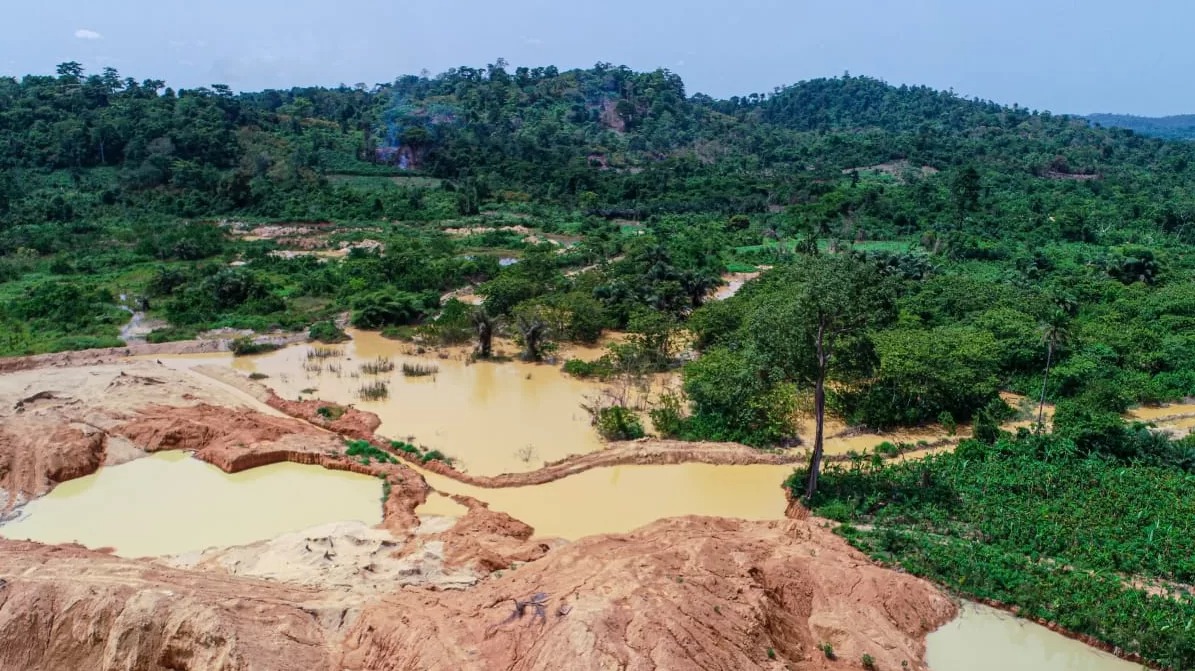Illegal mining, often called “galamsey” in Ghana, has devastating effects on communities, livelihoods, and the environment. While the allure of gold drives many into the trade, the toll on human lives and ecosystems is severe. This article explores the causes, impacts, and potential solutions to this growing crisis, emphasizing personal stories and actionable insights.
The Allure of Gold
Ghana is one of the world’s leading gold producers, contributing significantly to its economy. However, this blessing has become a double-edged sword. In 2020, illegal mining caused extensive environmental degradation and social instability. Rivers were polluted with mercury, and farmlands were destroyed, leaving vulnerable communities distressed. For many, the allure of earning more through galamsey than farming remains irresistible, despite the environmental and social costs.
Why Do People Turn to Illegal Mining?
Many rural communities lack viable employment opportunities. In places like Tarkwa, Prestea, and Obuasi, youth face limited prospects and often resort to illegal mining for survival. Without alternative job options, galamsey becomes an attractive, though dangerous, means of making a living.
Illegal mining also offers immediate monetary rewards compared to farming or small businesses. A seamstress from the Ashanti Region noted that she earned more in a month from galamsey than in a year of sewing. For many, the short-term financial gains outweigh the long-term consequences.
A significant factor is the lack of education and awareness. Many miners are unaware of the long-term environmental and health risks. In some areas, galamsey is viewed as a tradition passed down through generations, making it difficult to break the cycle.
Another challenge is the exploitation by influential figures. Local chiefs, government officials, and foreign nationals often fund and support illegal mining operations, profiting from the work of vulnerable communities while shielding themselves from accountability.
Finally, environmental damage and climate change have made farming and fishing unsustainable. Rivers like Pra and Ankobra, once used for irrigation and fishing, are now too polluted to support traditional livelihoods. With no other options, many turn to mining as a desperate means of survival.

Picture Credit: Frank Ayisi Damptey - Modern Ghana
Communities in Crisis
Illegal mining has led to widespread water pollution. The Pra and Ankobra Rivers, once vital sources of drinking water and irrigation, are now toxic wastelands contaminated with mercury and other hazardous chemicals. This has resulted in severe health crises, including waterborne diseases and mercury poisoning.
Farmers are among the hardest hit. Fertile lands are destroyed overnight, leaving families without
sustenance. A cocoa farmer in the Western Region recounted how illegal miners dug up his plantation, ruining years of hard work. The destruction of farmland disrupts food production and threatens national food security.
The health risks associated with galamsey cannot be ignored. Mercury poisoning, respiratory illnesses, and exposure to toxic chemicals are rampant in affected areas. Miners work in dangerous conditions, often without protective gear, and risk death from pit collapses and hazardous fumes. These unsafe working environments place entire communities in danger.
The Way Forward
Empowering local leaders, youth, and women to lead the fight against galamsey is essential. Community-led initiatives can educate residents about the risks and promote sustainable alternatives. Public awareness campaigns and grassroots advocacy can help shift attitudes toward illegal mining.
Stronger law enforcement is necessary to combat illegal mining. The Ghanaian government’s National Plan for Galamsey Eradication emphasizes collaboration between security forces and local authorities. However, enforcement must be fair and transparent, ensuring that those who exploit miners for profit face consequences.
Education and skill development can provide alternative livelihoods for those involved in illegal mining. Vocational training in eco-friendly industries such as renewable energy, sustainable farming, and environmental conservation can help miners transition to safer and more stable jobs.
Conclusion
Illegal mining in Ghana is more than an environmental issue; it is a human crisis affecting countless lives. Every polluted river, displaced family, and destroyed livelihood underscores the urgent need for action. By prioritizing community-driven solutions and fostering sustainable development, Ghana can chart a path toward a future where its resources benefit all citizens—not just a few.
References
- Hilson, G. (2002). Small-scale mining and its socio-economic impact in developing countries.
- Tschakert, P., & Singha, K. (2007). Contaminated identities: Mercury and marginalization in Ghana’s artisanal mining sector.
- Amankwah, R. K., & Anim-Sackey, C. (2003). Strategies for sustainable development of the small-scale gold and diamond mining industry of Ghana.
- Boadi, S., Owusu, K., & Badu, M. (2016). Environmental impact of mining in Ghana: Issues and solutions.
- Ghana Chamber of Mines. (2020). Annual report on Ghana’s mining industry.
- (2015). Artisanal and small-scale mining in Ghana: Evidence to inform an ‘action dialogue.’
- Ghana EPA. (2019). The state of water bodies is affected by illegal mining.
- (2017). Mercury and health.
- Joy Online News. (2024). The human cost of illegal mining: Voices from affected communities.
- Government of Ghana. (2023). National Plan for Galamsey Eradication and Community Support.
- Essamuah, Z. (2024). Demonstrators demand Ghana’s government crack down on illegal gold mining. NBC News.
Picture Credit:
https://www.modernghana.com/news/1245606/illegal-mining-in-ghana.html
https://businessdayghana.com/environmental-impact-of-illegal-mining-in-ghana-part-1/
Share this post: on Twitter on Facebook on LinkedIn

Nice piece. Our leaders should do better